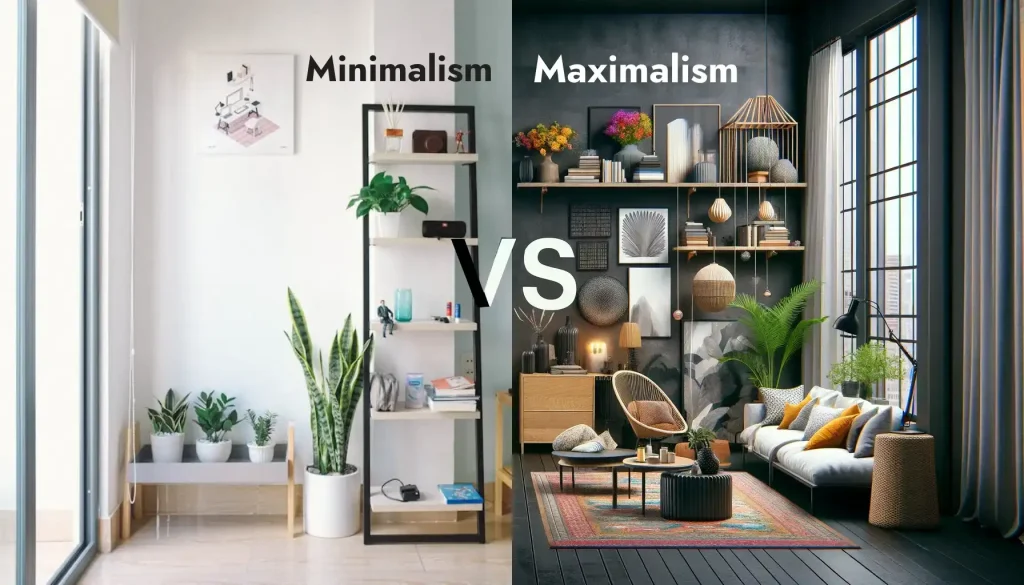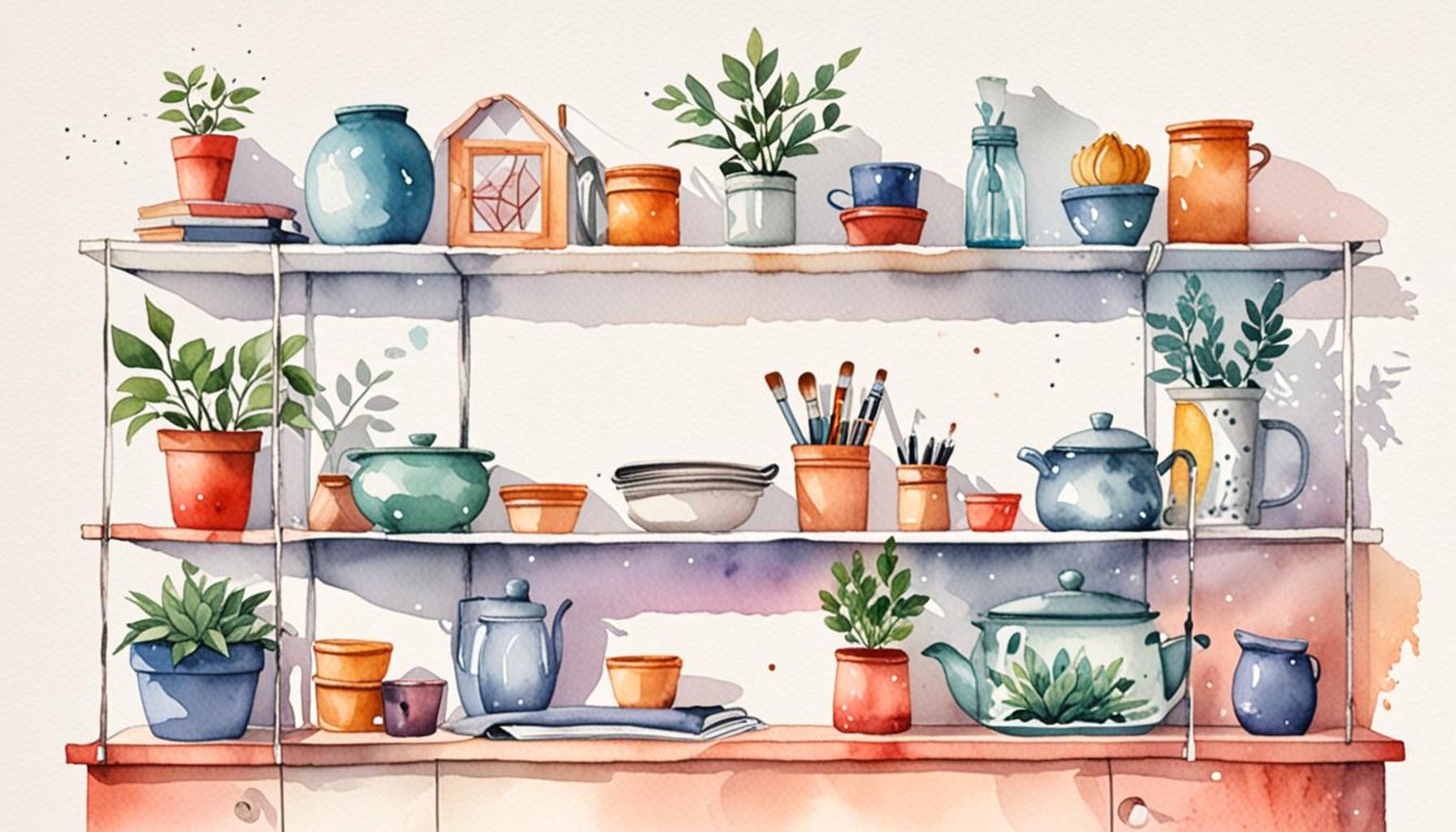Boost Mental Health Embrace Minimalism to Reduce Clutter

Discovering the Link Between Minimalism and Mental Clarity
In today’s fast-paced world, the incessant accumulation of possessions and commitments can lead to overwhelming stress and anxiety. Embracing minimalism may offer a powerful antidote to this clutter-induced chaos. By focusing on what truly matters and simplifying our lives, we can uncover a path to improved mental well-being.
Minimalism isn’t just about living with less; it is a lifestyle that promotes clarity, focus, and intentionality. Research has shown that reducing physical clutter can lead to a significant decrease in emotional clutter, providing a clearer mindset and improved ability to cope with life’s challenges.
This article will explore the top 5 ways minimalism can enhance your mental health, highlighting practical tips and strategies. Each point will illustrate how the conscious act of decluttering can lead to a more peaceful, organized, and fulfilling life.
Top 5: The Importance of Minimalism in Mental Health: How Reducing Clutter Can Improve Your Well-Being
In today’s fast-paced world, clutter—both physical and mental—has become a significant source of stress and distraction for many. As consumer culture encourages the accumulation of goods, the minimalist lifestyle has emerged as a valuable counterbalance, providing a refreshing approach to mental clarity and enhanced well-being. The minimalist mantra “less is more” has far-reaching implications for mental health, offering a path toward reduced stress, increased focus, and a reprioritization of values.
This article delves into the top five reasons why adopting a minimalist lifestyle can be a transformative force for your mental health. By exploring how minimalism addresses various mental challenges, we can gain insights into the profound benefits it brings. From decreasing decision fatigue to fostering a healthier relationship with materialism, minimalism is a powerful tool for enhancing mental well-being. Let us embark on a journey to discover these benefits, beginning with the fifth reason and culminating with the number one reason why minimalism can be a crucial ally in maintaining mental health.

5. Decreasing Decision Fatigue
Today’s average person makes around 35,000 decisions daily, ranging from simple choices like what to wear to more complex decisions at work. This decision-making process can lead to what psychologists call decision fatigue, where the quality of our choices diminishes as the day progresses. Minimalism plays a key role in mitigating this issue by streamlining the number of daily decisions required.
- Reducing possessions means fewer choices regarding clothing, gadgets, and other personal items, thereby conserving mental energy for more critical decisions.
- A simplified environment helps declutter the mind, allowing for clearer focus on important matters.
For instance, tech entrepreneurs like Steve Jobs and Mark Zuckerberg famously streamlined their wardrobes to concentrate their mental energy on their work. By embracing a minimalist approach, you too can harness your cognitive resources more effectively and prioritize decisions that have a meaningful impact on your life.
4. Enhancing Focus and Productivity
Research has consistently shown that a clutter-free environment promotes clarity of thought and improves focus. In contrast, a workspace filled with distractions can significantly hinder productivity and cloud judgment. Minimalism offers a pathway to create environments that foster creativity and efficiency.
- Studies reveal that people are more productive and less stressed in tidy, organized settings.
- Minimalism reduces distractions, allowing deep, undisturbed engagement with tasks and projects.
A clean desk, for instance, is often associated with higher levels of productivity and mental clarity. By minimizing clutter, individuals report feeling mentally lighter, enabling them to tackle complex tasks with greater ease. The minimalist philosophy encourages the organization of both physical and digital spaces to enhance overall performance and creativity.
3. Reducing Stress and Anxiety
Clutter in the physical environment can often translate into heightened levels of stress and anxiety. The visual reminder of incomplete tasks and disorderly spaces can become overwhelming. Minimalism aims to reduce this chaos by helping individuals eliminate unnecessary items and distractions.
- By decluttering, people create serene spaces that promote peace of mind and relaxation.
- Focusing on essentials fosters a sense of joy and contentment, reducing anxiety.
For example, the practice of tidying up, popularized by experts like Marie Kondo, has demonstrated the psychological benefits of minimalism. By prioritizing only the essentials and letting go of extraneous items, individuals can find solace in simpler, more organized environments, significantly reducing mental strain and promoting overall tranquility.
2. Cultivating Mindfulness
Minimalism and mindfulness are inherently connected, as both encourage individuals to live intentionally and remain present. A minimalist approach involves being deliberate about the elements in your life, thereby promoting mindful living, which carries profound mental health benefits.
- Mindfulness practices are associated with stress reduction, enhanced emotional well-being, and greater self-awareness.
- Intentional living fosters an appreciation for what one has, leading to increased gratitude and satisfaction.
For instance, in a minimalist setting, each item is selected with purpose, encouraging reflection on one’s true needs and wants. This intentionality not only cultivates a sense of gratitude but also encourages a deeper sense of contentment and joy, derived from living in the moment and appreciating life’s intrinsic value beyond material wealth.
1. Fostering a Healthy Relationship with Materialism
In modern society, there’s often an implicit belief that happiness is linked to wealth and possessions. Minimalism challenges this notion, encouraging individuals to redefine their relationship with material goods. By prioritizing experiences over material possessions, minimalism offers a pathway to a richer, more meaningful life.
- Investing in experiences such as travel, personal growth, and relationships enhances emotional resilience and satisfaction.
- Minimalism enables individuals to allocate more time and resources to activities that genuinely nourish their lives and mental health.
This perspective encourages a significant shift away from dependency on material wealth towards a focus on personal growth and experiences, which lead to lasting happiness and well-being. By embracing minimalism, individuals often find themselves more at peace, as their happiness is no longer contingent on acquiring more but is instead nurtured by meaningful connections and experiences.
Incorporating these five key elements of minimalism into your lifestyle can greatly enhance your mental health and well-being, helping you lead a more peaceful and fulfilling life. As you explore each aspect of minimalism, you may find yourself not only decluttering your space but also your mind, creating room for what truly matters and discovering the lasting joy of simplicity.
As minimalism gains traction in various domains of life, its positive implications for mental health have become increasingly evident. One significant aspect is the concept of reducing sensory overload. Our modern environment is filled with stimuli that can overwhelm the mind, leading to stress and anxiety. By simplifying our surroundings, we can create a calming atmosphere that promotes mental clarity and emotional stability. Environments that are clutter-free allow for greater focus and the ability to think more clearly, which is essential for mental well-being.Another important factor to consider is the emotional attachment to possessions. Many individuals find solace in material possessions, yet these items can also become sources of distress. By embracing minimalism, one learns to assess their belongings critically and let go of items that do not add value to their lives. This process of decluttering can lead to a significant emotional catharsis, freeing individuals from the burdens of past attachments and encouraging them to invest emotionally in experiences rather than in items.Furthermore, minimalism promotes mindfulness, engaging individuals in a conscious effort to live in the moment. In a world flooded with distractions, practicing mindfulness through minimalism can lead to enhanced awareness and appreciation for life’s simple pleasures. This shift in perspective can mitigate feelings of anxiety and depression by fostering gratitude and presence.Lastly, there’s a profound connection between minimalism and financial well-being. A minimalist approach often leads to reduced spending, as individuals prioritize needs over wants. This shift can alleviate financial stress, providing a sense of control and stability in life. The reduction in financial burden can therefore contribute to improved mental health, enabling individuals to focus their energies on what genuinely matters to them.Incorporating these elements into our lives does not dictate that we must live without belongings permanently. Instead, minimalism encourages a thoughtful and intentional approach to what we choose to keep around us, ultimately leading to improved mental health and overall well-being. By continuously evaluating the role of physical and emotional clutter in our lives, we take the reins of our mental landscapes and find peace in simplicity.
Frequently Asked Questions about Minimalism and Mental Health
What exactly is minimalism, and how is it linked to mental health?
Minimalism is a lifestyle choice that involves simplifying one’s environment and reducing clutter. It is believed that by decluttering your physical space, you can also make room for mental clarity, leading to improved well-being. Many studies suggest that a cluttered environment can contribute to stress and anxiety, so adopting a minimalist approach may help mitigate these issues. By focusing on the essentials and reducing excess, you can achieve a more balanced and peaceful state of mind.
How can embracing minimalism have tangible effects on mental well-being?
When you reduce clutter, you’re likely to experience less distraction and an enhanced ability to focus. This can lead to greater productivity and lower stress levels. Furthermore, the act of organizing and simplifying your surroundings can be therapeutic in itself, providing a sense of control and accomplishment. Minimalism can promote a healthier mental state by encouraging you to spend your time and resources on activities and relationships that bring genuine joy and satisfaction.
Does minimalism necessarily mean getting rid of most of your belongings?
No, minimalism is not about living with as little as possible; rather, it’s about intentional living. The idea is to keep items that truly add value to your life and to let go of those that don’t. It’s a personalized approach—you determine what is essential for you. By prioritizing quality over quantity, you can create a living environment that is not only aesthetically pleasing but also supportive of your mental well-being.
Can minimalism have a negative impact on some people?
While minimalism has many benefits, it may not suit everyone. For some, the process of decluttering can be overwhelming or stressful. Additionally, cultural and personal values play a role in how individuals perceive minimalism. It is important to approach this lifestyle at your own pace, ensuring that it aligns with your personal circumstances and mental health needs. The key is to find a balance that works for you.
What steps can someone take to start incorporating minimalism into their life for better mental health?
Beginning with small, manageable changes is often the best approach. Start by assessing one area of your life or home at a time, removing items that don’t serve a purpose or bring joy. Gradually, this method can be applied to other facets of your life, including digital decluttering and restructuring your daily schedule. Incorporate mindfulness practices to stay connected to your goals, and remember to be patient with the process. Over time, these small changes can lead to significant improvements in your mental well-being.
Conclusion
The exploration of minimalism’s impact on mental health has revealed an intriguing intersection between simplicity and psychological well-being. Through the reduction of physical clutter and a focus on personal organization, individuals can attain a sense of clarity and peace that contributes positively to their mental health. As noted, the core principles of minimalism — decluttering, intentional living, and prioritizing what truly matters — offer a profound pathway to enhancing one’s mental state.
Key insights underscore the significance of intentional living, which empowers individuals to focus on their true priorities, thereby reducing stress and anxiety. By simplifying both physical and digital spaces, people can create environments conducive to mental clarity and emotional stability. This simplification process encourages a sense of control over one’s surroundings, leading to enhanced self-awareness and personal growth.
Furthermore, minimalism’s emphasis on mindfulness encourages individuals to be present, reducing the incessant noise of modern life that often fuels mental distress. In essence, by clearing the physical clutter, minimalism also clears the mental clutter, allowing more space for creativity, relaxation, and authentic connection.
The journey toward minimalism does not advocate for a complete elimination of possessions but rather a thoughtful curation of one’s environment and life choices. This approach highlights the potential for increased fulfillment and improved mental health outcomes. Embracing minimalism can indeed be a transformative experience, opening doors to a deeper understanding of what truly nurtures inner peace.
As we continue to grapple with the complexities of modern life, revisiting the principles of minimalism offers a promising avenue for enhancing mental well-being. By adopting a simplified lifestyle, individuals can hope to achieve a greater sense of balance, purpose, and tranquility. The potential benefits of this shift are profound, urging us to consider how reducing disorder might just be the key to unlocking a healthier, more contented existence.


